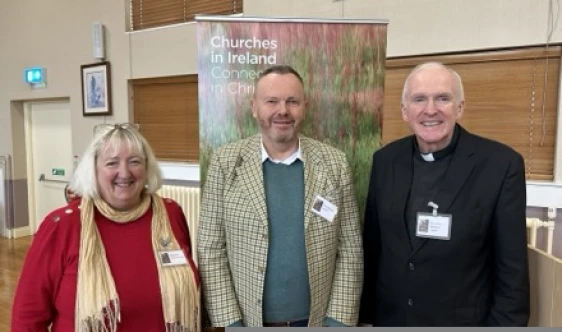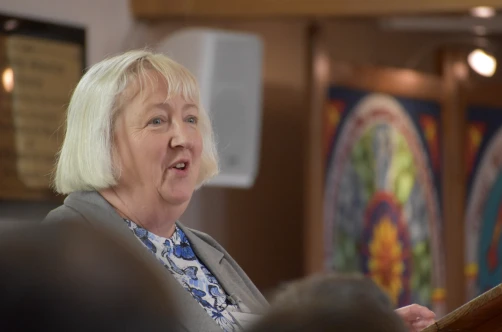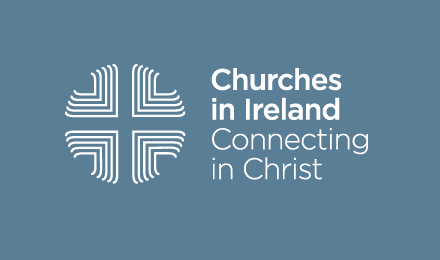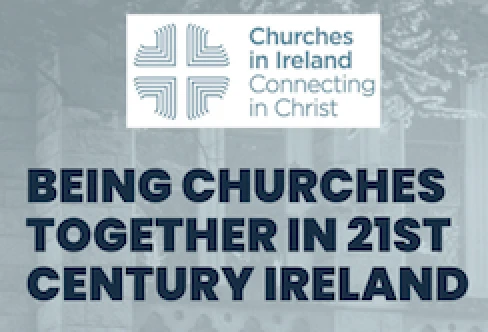
The Church in China is witness to current day work of the Holy Spirit, a success story. There are three new churches every two days, 38 million Christians in total and 400,000 newly baptised each year.
The members of the Church want to grow in the faith, and mission is high on their agenda; as the Chairman of Shanghai CCC, the Revd Shen Xue Bin, said: “Share Jesus, everywhere, every day, everyone.” This missional attitude explains in some way the growth. The Church in China – both registered and unregistered congregations – is growing fast.
To a country where agencies encouraged the quiet smuggling of Bibles, the irony is not lost that the world’s largest producer of Bibles now is in China. The Amity printing press has printed more than one hundred and sixty million Bibles since the opening up of religion by the State, over 25 million copies a year, distributed to a hundred different countries. More than 77 million Chinese homes own an Amity Bible.
With the ending of the Cultural Revolution and the State permitting five religious communities – Catholic, Protestant, Taoist, Muslim and Buddhist – to practise their faith, the question is being asked, “What does it mean to be a Chinese Christian?’”
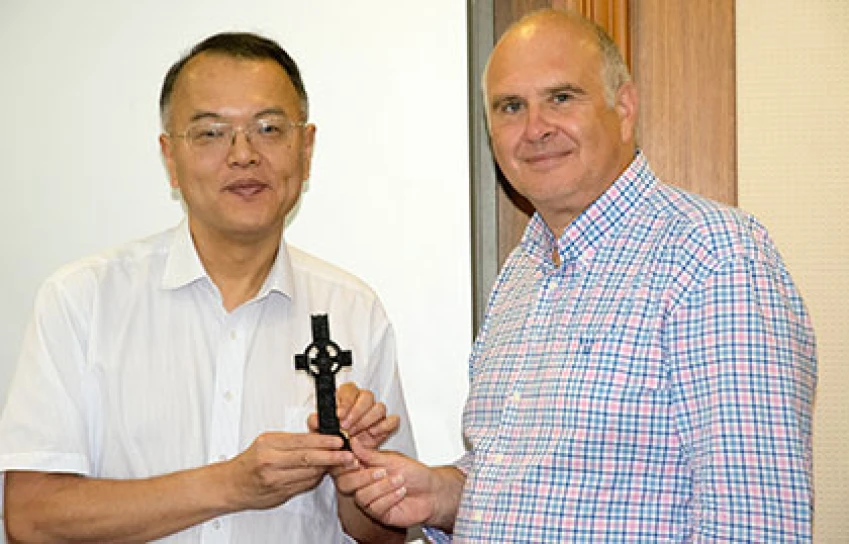
Rev Shen Xue Bin, Chair of Shanghai CCC, with Rev Brian Anderson, Vice–President of the Irish Council of Churches
Places of worship have a strange Western Christian feel, with the Mandarin language giving voice to the traditional hymns such as ‘This is my story, this is my song’. But what is their story? What is the song? Well, it is survival to huge growth; it is faithfulness; it is unity; but it is lacking a distinctive Chinese feel.
Though the newly finished huge Cathedral at the National Union Theological College in Nanjing is beautifully modern, the stage, pulpit and white–painted walls say nothing of the Chinese Church.
It is difficult to find a distinctive Chinese spirituality, but maybe that is the effect of the regime that stripped society of its heritage and historical identity. Maybe it takes time to recover and be confident in expressing Chinese Christian Culture.
Or is there another reason? The current Chinese Church is post denominational. While there are echoes of denominationalism in church architecture, the Holy Trinity Church in Shanghai is like walking into St Anne’s Cathedral in Belfast, just a more modern version. Yet the CCC works at keeping the Protestant faith as one, which may explain the lack of any distinctive Chinese feel to the church. One distinctive expression I did notice was that the Crosses on and in churches were red. I enquired why, anticipating the response: “In China red is the colour of strength and success” to be told: “No, it represents the blood of Christ”. Sometimes we can over think these things.
It would be wrong to think that this post–denominational Church has a unified outlook. Unity in China is about practice; it may be a pragmatic solution to the relationship between Church and State but it is also a significant witness to the denominationally divided churches of the West and the desire to make it work.
We are remembering in many different ways the 500th anniversary of the Lutheran Reformation and the impact it has today. Over the following 500 years we have not been able to agree within the Protestant traditions, for example, a unified attitude to interpreting Scripture.
So we have formed what could be described as interpretative communities gathering around certain historical reforming individuals, such as Luther, Calvin and Wesley, warming to the way they read the Bible and shaped faith at that time and on into the present day. The often quoted: “There is more that unites us than divides us” is true of Protestantism, but we recite it from our denominational bunkers or cosy ecumenical gatherings. What if we faced our divisions with a Chinese pragmatism that holds unity a real goal.
I finish with a quotation from Bishop Ting, the founder of the Amity Foundation. He wrote: “Christianity moves and compels people not by its doctrines, but by the love made manifest, love held high and spread abroad, love waiting eagerly for the final coming of a world of love. This love draws countless men and women who give their all to enlarge love’s realm.’”
Rev Brian Anderson is Minister at Wesley Centenary Methodist Church, Bangor; a former President of the Methodist Church in Ireland; and the current Vice–President of the Irish Council of Churches.
